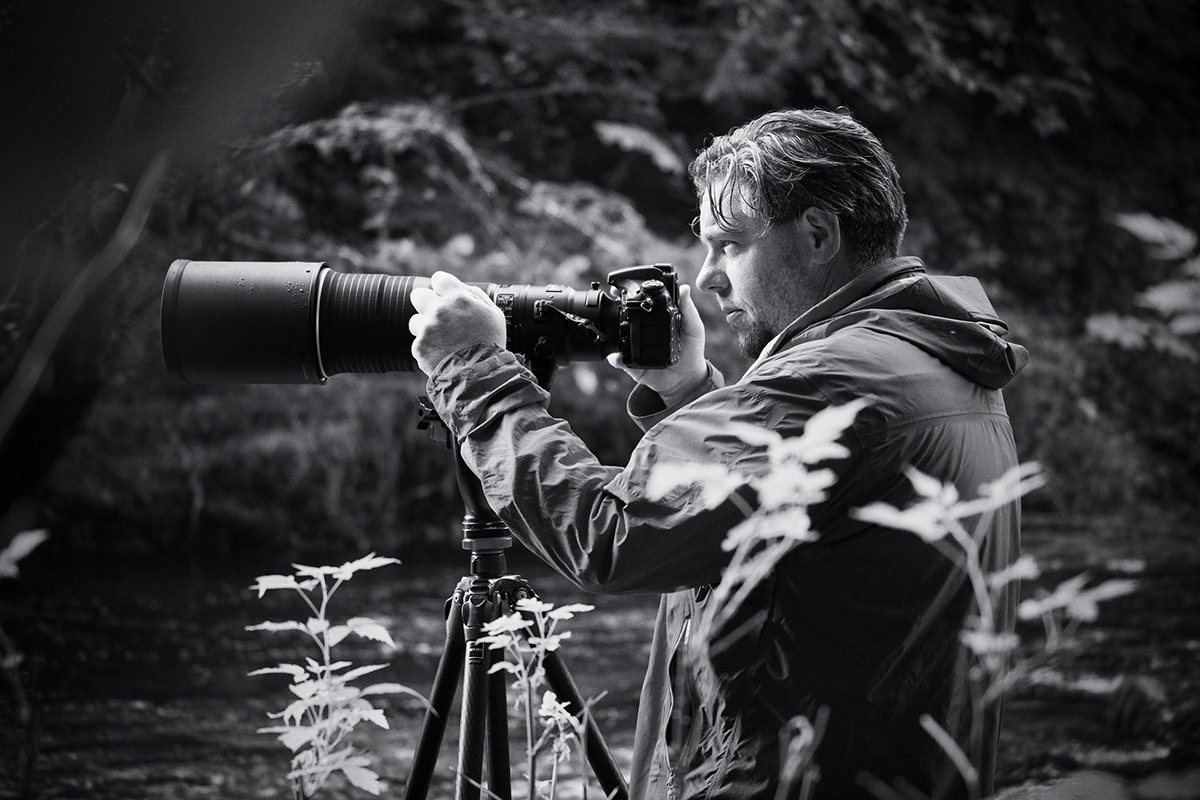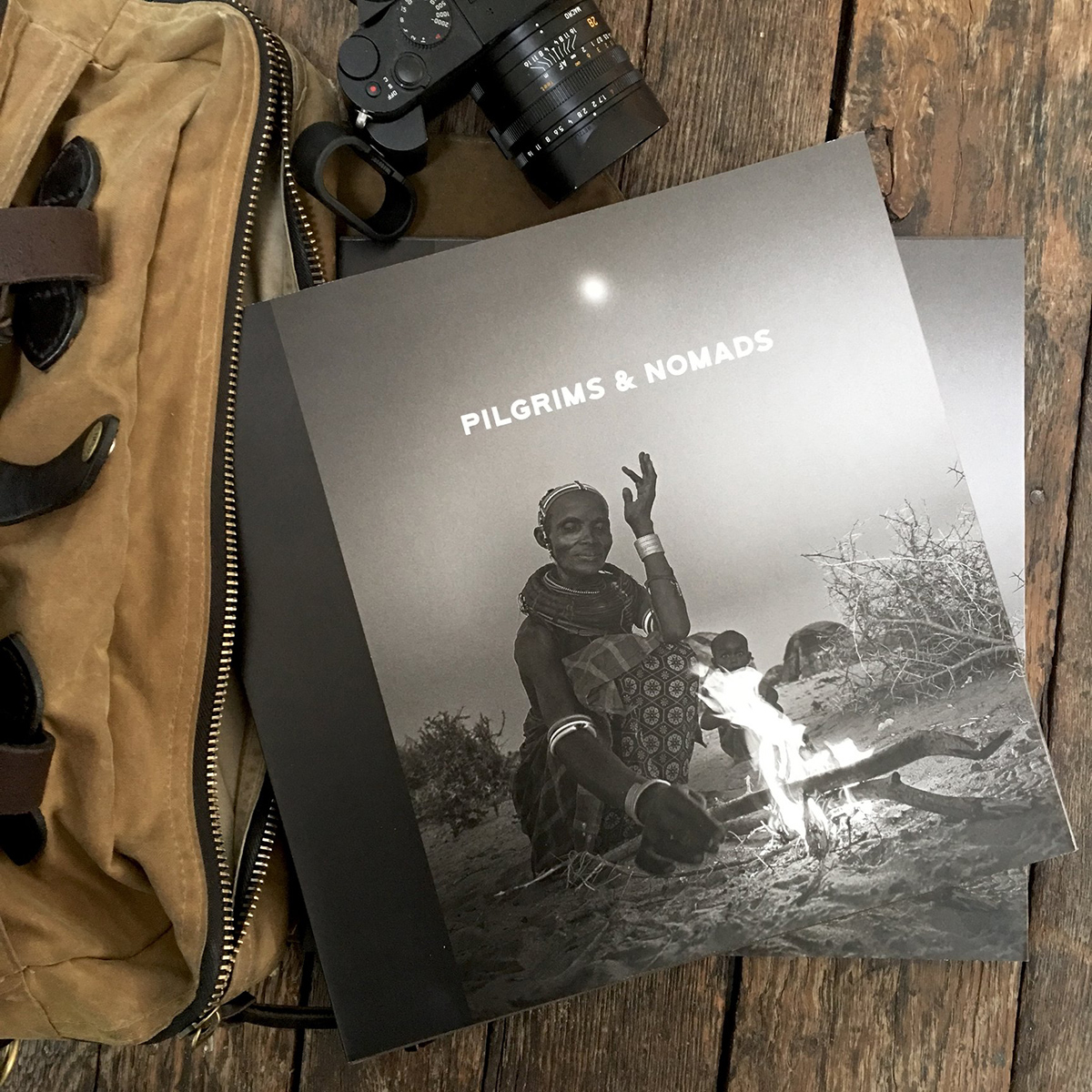A couple times a month, I get on the phone or Skype with some wonderfully talented photographers to mentor them and nudge them forward in their craft. Almost every time the concerns are the same, the questions are similar. Is my work any good? What are my next steps? How do I grow? Of course every conversation is different, but the end result is often the same and I find myself saying some version of these words that I’m hoping you’ll consider for yourself:
Your work is technically fine. You don’t need help there. You have an eye and visual taste enough that you know what you like. I can’t help you there. But you’re all over the map. You shoot this. You shoot that. And that’s fine, but that approach won’t take you deeper.
Deeper matters. Deeper requires time and focus. Deeper brings new ideas the more you work on something. Deeper gets you past the obvious and the low-hanging fruit. Look, there’s nothing wrong with the low fruit, but it’s the same as others are picking. Unless they also go deeper.
Deeper is what we resonate with when we see the work of someone who has photographed the same subject longer than others might have; that time and attention—that focus—has given them the opportunity to see what others have not. To see possibilities and to become more aware of their own reactions to what they are seeing. It is seeing those things and then having the time to work on finding new ways, specifically our ways, of expressing those things with our craft, that will make our photographs, and our experience making them, so much stronger. Deeper.
Very few of the people reading my words need hard lessons in craft. Some, perhaps, but if you can focus and expose, now is the time to begin to go deeper, not later. You’ll learn your craft as you go deeper. The reverse is rarely true. In fact, it’s often the manic pursuit of craft, new tools, and techniques that prevent going deeper.
Broadly speaking, we have a choice: to go shallow and do it all, to play the dilettante with every subject, or to channel our time and energies. Rare is the human who can do both.
Look at the acknowledged masters of this craft and you will see large bodies of work that focus on specific places, subjects, themes. Do masters only focus on a few things? No. Focusing on a few things is what gives us a chance at becoming masters.
Mastery isn’t the goal, but do you see what I’m getting at? Focusing brings depth. And it is depth and knowledge of the subject and how the photographer expressed that over time to which we respond in the greatest photographs. Rarely do we respond merely to their mastery of craft in the technical sense.
So getting back to those I mentor. Here is my near-universal suggestion to them: take the one subject you are most excited about right now and spend a year on it. If it’s the meeting place of ocean and land at dusk then spend a year exploring that. If it’s the tradespeople in your neighbourhood or it’s your aging parents, give it a year. Be intentional. Make hundreds and hundreds of photographs. Take the time to know what works and what doesn’t and to dig deeper into how you can give that one subject its best expression. And make it your aim to create a body of work of 12 images, maybe 24 or 36. But no more.
Your success will not be measured by how many images you can cram into the final expression of this project. Don’t put pressure on yourself to create some vast body of work. Instead focus on going deeper, to playfully explore the subject knowing you can fail spectacularly on most days and turn those so-called failures into lessons, and still have plenty of time to make your 12 images.
And by the end of the year, it should be painful to edit down to 12 or 24. To quote Stephen King about the way writers must edit out some of their favourite pieces of writing to make the book the best it can be, it should be like sacrificing your darlings. Editing is also part of the creative process and even then, the easy path is going broad and simply choosing all the images that “don’t suck” rather than forcing yourself to choose the best of the best. Rather than going deeper.
This approach, far from being limiting, is tremendously liberating. It doesn’t limit you from photographing other things as you see them, and as the muse calls. But it gives you a project.
It gives you discipline.
It forces choices upon you.
It demands more of you.
That is where we find growth. Not doing more of the same by pointing your lens at everything that moves, where it’s safe in the shallow end and you can put your feet down whenever you choose, but by pushing us into the deep end where our hearts beat a little faster and there’s something at stake.
This is a call to go deeper and to focus. What would that look like for you? Here’s one approach. Pick a subject or a theme. Spend one year exploring that, making thousands of sketch images, and flailing through the chaos of the creative process, to a specific goal: 12 or 24 final images by the end of the year, printed in a book or assembled as a monograph just for you in a box of 8×10 prints. Give yourself permission to focus.
Scary? It should be. Of course it is. But less frightening than waking up in a year to find you haven’t grown or stretched yourself, and that you’re still making the same ad hoc photographs of every new thing that catches your eye.
Easy paths rarely lead us to the kind of joy we find in looking at a hard-earned body of work that one year ago we would never have foreseen or dreamed we were capable of. You might not even be capable of it now. That’s why we do it. The work makes us as much as we make it.
And if you do take me up on this, please send me a link so I can see that work. I know how hard it is to move forward in a creative endeavour about which you care deeply and I’d love to celebrate that with you.
PS – The only way I know to teach is to share what I myself am learning. Over the last ten years, I’ve been learning about this kind of focus and depth myself through projects like Pilgrims & Nomads. You can still get one of 500 copies, signed and numbered and delivered to your door. It would make a wonderful holiday gift for your favourite photographer, even if that’s you. No, especially if it’s you. We learn to make good photographs by studying good photographs, and I hope you’ll consider my own efforts worth learning from. You can order Pilgrims & Nomads here. Thank you for your support.



Comments
I just got this article from a very good friend of mine and one who has helped me in my photography endeavors. I’ve always been asked what do I like to take pictures of and I would say a little of everything! As I was reading this I started to relate to every word. When you said what makes our hearts beat a little faster…..I thought for a minute and when that deer or the blue heron that catches a fish is in my view, that is when my heart beats very fast! I’m finally going to “ focus” on what makes my heart beat fast!!
Well done, Mary Lou! 🙂
Thanks David. This assignment is just what I need right about now. I have identified my project for the next year. Started on it this past weekend. I’ll let you see in a year from now. I like the part of printing up the final images and creating a book!!!
Right on, Gene! Way to go. Drop me a line in a year. Go deep and persevere!
“Deeper matters. Deeper requires time and focus. Deeper brings new ideas the more you work on something. Deeper gets you past the obvious and the low-hanging fruit. Look, there’s nothing wrong with the low fruit, but it’s the same as others are picking. Unless they also go deeper.”
These line are very important to understand all the photographer. You explain this in very great manner. I like it. without focus and visualize things no one will able to click great moment.
I feel like I’ve asked myself the very same questions your mentees have asked and you’re giving me the words I need to hear. Thank you again.
Totally agree. What I focus on, I achieve.
I struggle with focus in my professional life right now….continuing a day job with photography business on the side. Or…
Specific to photography, focus is why I primarily do one thing: real estate photography, residential and commercial. While there are things I’ll shoot recreationally, professionally it’s one thing.
Seems most folks expect if you have nice equipment, have matured as a photographer, you’ll shoot everything from sports, to weddings, baptisms, and so on. Many of those segments are saturated by ‘spouses with a camera.’ They also require a completely different set of equipment, mindset, and, yes, focus.
I enjoy what I do, I’m continue to get better at it. It, being just one or two ‘core’ things. Thanks for the article.
Thank you for this. It was exactly what I need to grow in my art.
David, I totally agree, but please tell this to all the ‘experts’ who tell us otherwise. Last year a professor from a US art college saw my portfolio and said “you need to diversify”. He suggested I focus on 3 different styles (…I ignored him). Since then I’ve noticed that the most interesting photographers became famous by focussing on a specific project. Much like artists.
…you consistently hit the nail on the proverbial head. Thankful to have soaked this one in.
Boy, you sure nailed me here. I think this is exactly what I needed to hear. I am all over the map and I do enjoy my map but find that more often I get tired and bored with the low hanging fruit.
This is exactly what I have to do! Focus, focus, focus. This post is for me. Thank you.
You are right.
I should focus. Everything else is diffusing one’s energy.
Leads to nothing.
(BTW: Bought lately Masahisa Fukases book “Ravens”, a masterexample for a project.
Photographed ravens, but one third of the book has no ravens at all.
He had the freedom to deviate from his subject. Fascinating.
Oh, David, you got me! That’s a tough task as I always hide myself so far in making series of 12 with regards to various topics of the composition basics. Usually, I shot a couple of hundred sketches over 2 to 3 weeks and then select my 12 images. I always thoutht, that I have to learn the basics first, before I have a look at the greater picture. But maybe you are right. I will give the project “Gimmeldingen” a go for one year and commit myself to it. Although, I have only a faint clue how to create a compelling photographic story. But let’s see if I can manage to transfer my love for this litttle
village into my photographs.